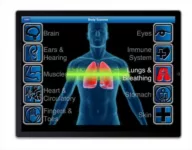Apple is slowly rolling out support for their new HealthKit initiative that promises a plethora of devices and apps that will keep us all healthier, fitter and happier. But there are some serious questions about the emerging world of health and fitness devices and apps.
One of the biggest concerns is how close to the legal lines between passively monitoring various vital signs and crossing over into the realm of medical devices. Once companies cross that line then they become subject to FDA regulations and that means extensive testing, applying for approval and jumping through the thousand and one hoops that the FDA imposes upon pharmaceutical companies and medical device manufacturers.
You can’t simply come out with a new drug and start selling it without getting FDA approval (unless you call it a supplement, in which case you can pretty much come out with anything you want and claim that it does just about anything). And you can’t come out with a new medical device either.
But where exactly is that line? Anyone can buy stethoscopes, thermometers, sphygmomanometers (blood pressure meters) or even blood sugar meters on Amazon for less than $15. But you can’t buy an X-ray machine or magnetic resonance imaging device (or maybe you can if you’ve got enough money).
Another concern about health and fitness devices is privacy. There are a lot of companies trying to get into these areas and not all of them are doing it out of the goodness of their hearts. Yes there could be potential benefits to applying big data analytics to health records but as Thomas Graf, chief medical officer at Geisinger Health System pointed out in an article by Matt McFarland in the Washington Post:
“There will be criminals. There will be people who are bad actors. At some point something is going to get out,” Graf said. “It’s not an irrational fear.”
Another fear is that people will rely on their devices rather than consulting a doctor if something is wrong. It’s quite possible that someone could die even though their smart watch tells them everything is fine.
Finally, and this is probably the most frightening aspect of health and fitness devices and apps, there will be people creating applications that claim to do things that they can’t really do. There are a few apps available today that claim to be able to read your blood pressure simply by holding your smartphone next to your chest. (And if you believe that then it’s not your heart you should be worrying about, instead you should get your head examined.) Dozens of apps claim to be able to do all sorts of things and you have to wade through the fine print before you find the phrase ‘for entertainment purposes only.’
It is almost a certainty that there will be hundreds of quack-apps popping up in all the app stores, and Apple and Google have only just begun to crack down on ‘entertainment’ apps that appear to be legitimate health tools.
There are a number of other issues like data formats, issues about sharing data even if you want to and whether or not doctors will even want or can use all the health and fitness data we will gather from these devices.
There are a lot of issues to be faced and people will probably figure things out as we get deeper into the world of health and fitness self-monitoring.








